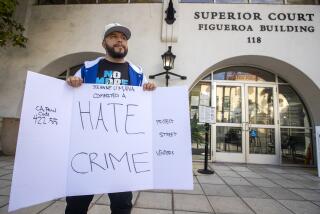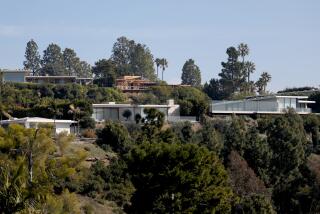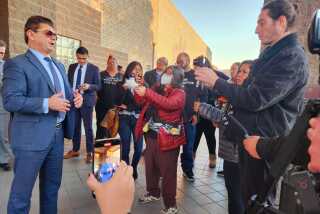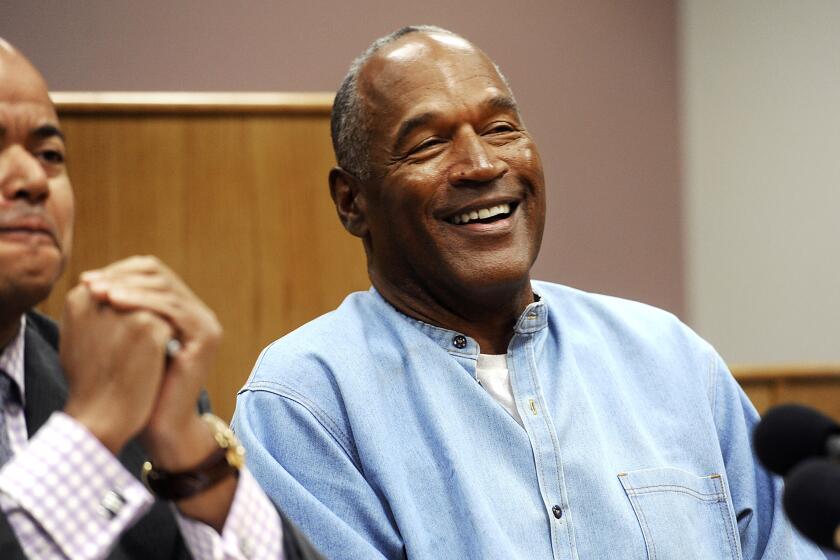Judge strikes ordinance Beverly Hills used to charge protesters
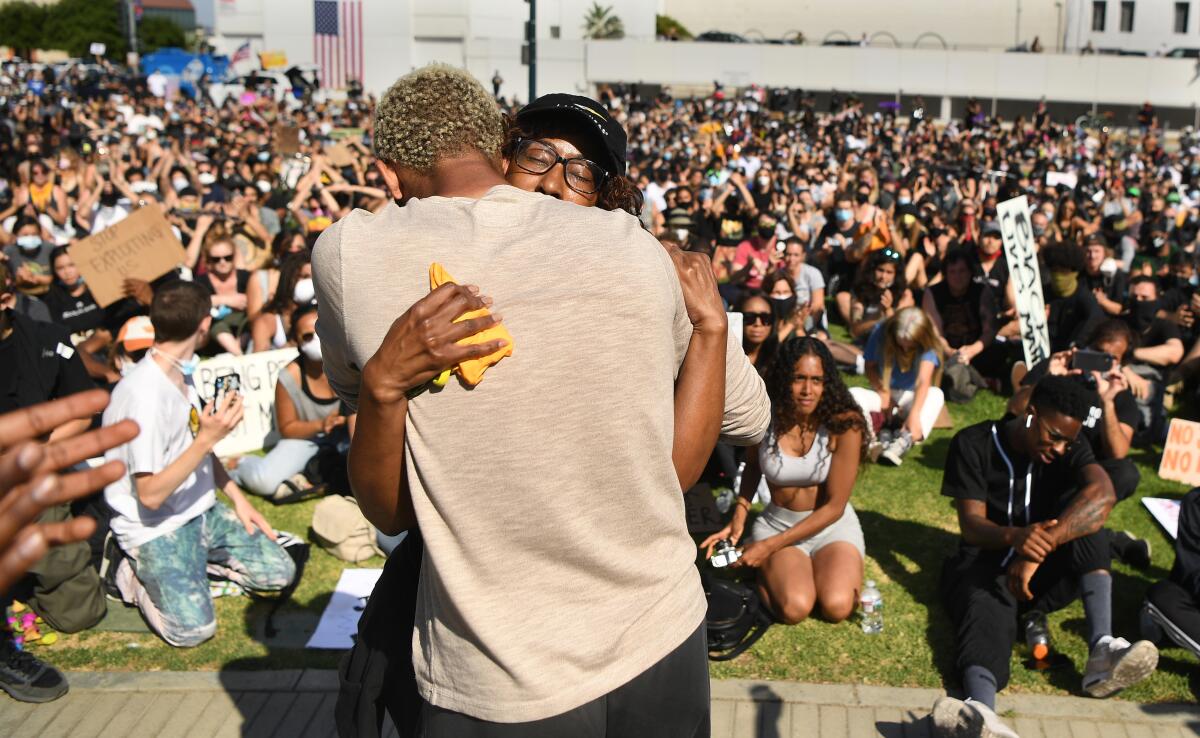
Criminal charges against more than two dozen demonstrators arrested last summer in Beverly Hills must be tossed out because an emergency ordinance the city used to arrest the protesters is unconstitutional, a judge ruled Friday.
The wealthy enclave city set amid Los Angeles took an unusually aggressive posture toward protesters who were part of mass demonstrations that took place across the region and country against the killings by police of George Floyd and Breonna Taylor.
As many of the county’s top law enforcement officials, including then-Dist. Atty. Jackie Lacey and Los Angeles City Atty. Mike Feuer, vowed not to prosecute thousands of peaceful demonstrators whom police cited for curfew violations or other minor violations, Beverly Hills officials pressed ahead with cases to the puzzlement of civil liberties advocates.
The city intended to prosecute the demonstrators under an emergency ordinance its City Council passed to “preserve the peace and tranquility of residential neighborhoods.” The measure barred loud gatherings of more than 10 people after 9 p.m. in residential areas.
L.A. County Superior Court Judge Mark E. Windham found the ordinance was overly broad, writing in a nine-page ruling that requiring silence in residential areas violated people’s right to free speech.
“ Beverly Hills cannot prohibit legitimately targeted disturbances with a measure that equally prohibits innocent protected expression,” he wrote.
If convicted under the ordinance, demonstrators faced up to six months in jail. Friday’s ruling was met with relief by attorneys affiliated with the National Lawyers Guild, many of whom volunteered to defend clients in the case.
“Today’s ruling was the result of a tremendous group effort of dedicated volunteer attorneys who were collectively dumbfounded and deeply concerned by the Beverly Hills ordinance,” said attorney Jerod Gunsberg. “A law requiring silence from any public gathering of 10 or more people is absurd and unconstitutional on its face.”
Keith Sterling, a spokesman for the city of Beverly Hills, said in a statement that city officials believe the rules were “constitutional as a temporary restriction.” And a permanent ordinance passed last fall “does not require silence and we believe that it meets the constitutional requirements of today’s decision by Judge Windham,” Sterling wrote.
The June 26 demonstration where the protesters were arrested was organized by a group called Black Future Project and drew about 75 people to Beverly Hills. Although the demonstration was calm compared with protests in Los Angeles earlier that month, some of which devolved into vandalism and theft, Beverly Hills police still arrested 28 people, almost all for violation of the ordinance. One man was also accused of arson for burning a U.S. flag.
Police initially planned to keep demonstrators in jail unless they posted $5,000 in bail — a hardball tactic decried by civil liberties advocates. Police later relented and released people on their own recognizance.
More to Read
Start your day right
Sign up for Essential California for news, features and recommendations from the L.A. Times and beyond in your inbox six days a week.
You may occasionally receive promotional content from the Los Angeles Times.
